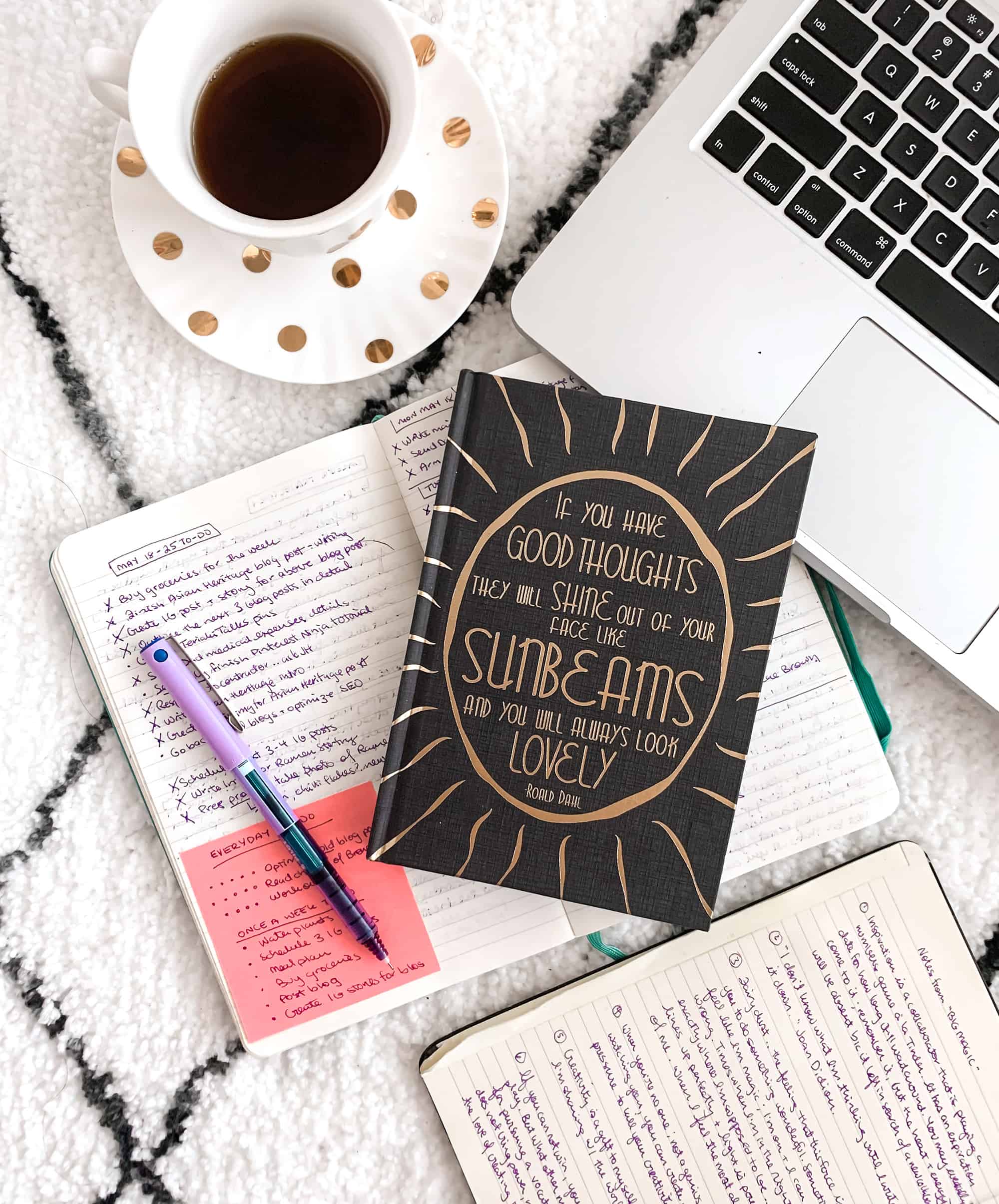
If you’re sitting there, mulling over all the times you attempted to keep different types of journals and failed, I get it. It can seem like a daunting, time-consuming commitment to record your day-to-day or articulate painful feelings when your first impulse is to shove them aside, especially if you’re not a strong writer.
Maybe you’re more of a visual person who’s always doodling little pictures in the margins of your notebooks. Maybe you super tech savvy and a digital device is practically an extension of your arm. Maybe you don’t think you have the time to scrawl pages upon pages of your innermost thoughts.
No matter what which process or medium you gravitate towards, there is no right or wrong way to journal. Even if there was, it’s private so who’s going to know if you’re doing it “wrong”? If you’re really interested in the practice of journalling, find one that works for you.
Personally, I don’t know how I would’ve survived without being able to pour all of my fears and feelings out on to the page every time I felt like I’m was to explode. While I have already extolled the virtues and benefits of keeping a journal, it has been especially crucial to my mental well-being in angst-ridden times like these.
What better time to start a journal than now?
RELATED READING:
➳ How Keeping a Diary Can Change Your Life
➳ 8 Things You Learn From A Year of Blogging
➳ What Your About Me Page Should Include (and Why It’s Important!)
Don’t miss out on all of the benefits of journalling — from boosting productivity and increasing self-awareness to clarifying and manifesting goals. Just find a process that works for you. Here are 7 types of journals based on your vibes:
The Early Bird
What feels better than starting off the morning in the right headspace? Everyone has different rituals to kick off their day, from meditating to stretching, but if you’ve been considering various types of journals as a rejuvenating wake-up call, have you ever tried Morning Pages?
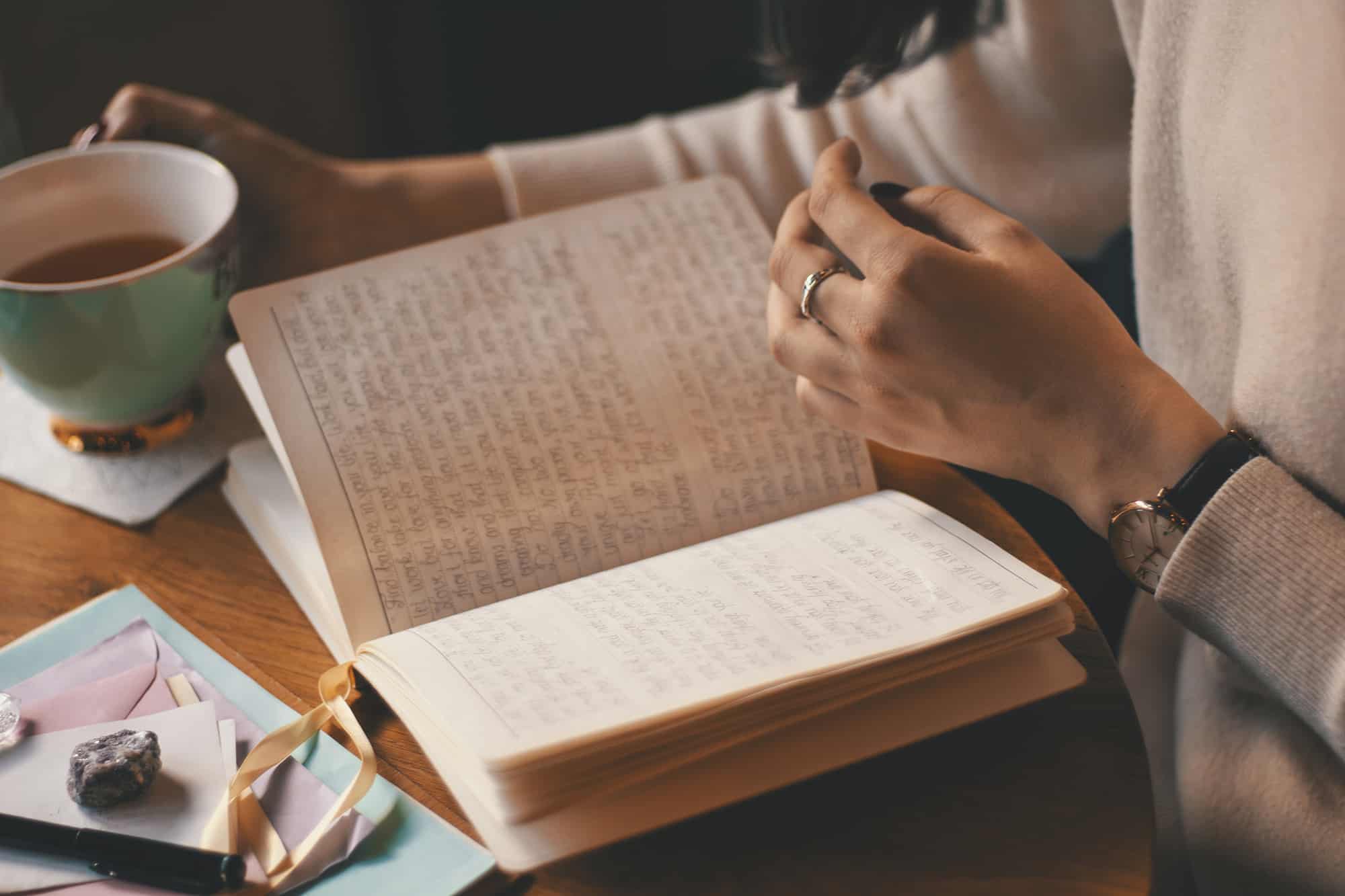
Developed by artist Julia Cameron, Morning Pages are three single-sided, 8.5 x 11 pages of longhand stream of conscious that are written ideally the first thing in the morning (duh). It’s essentially a brain dump — letting the words flow from your mind to the page without overthinking it.
This process is said to provide clarity, provoke creativity and allow you to process emotion among a myriad of other benefits. Sounds almost as reviving as a cup of coffee, no?
The Optimist
You don’t have to be a writer to appreciate the impact that words can have on your emotional well-being. If you’re a mantra lover or inspirational quote junkie, keep a journal as a source of inspiration for when you’re feeling down.
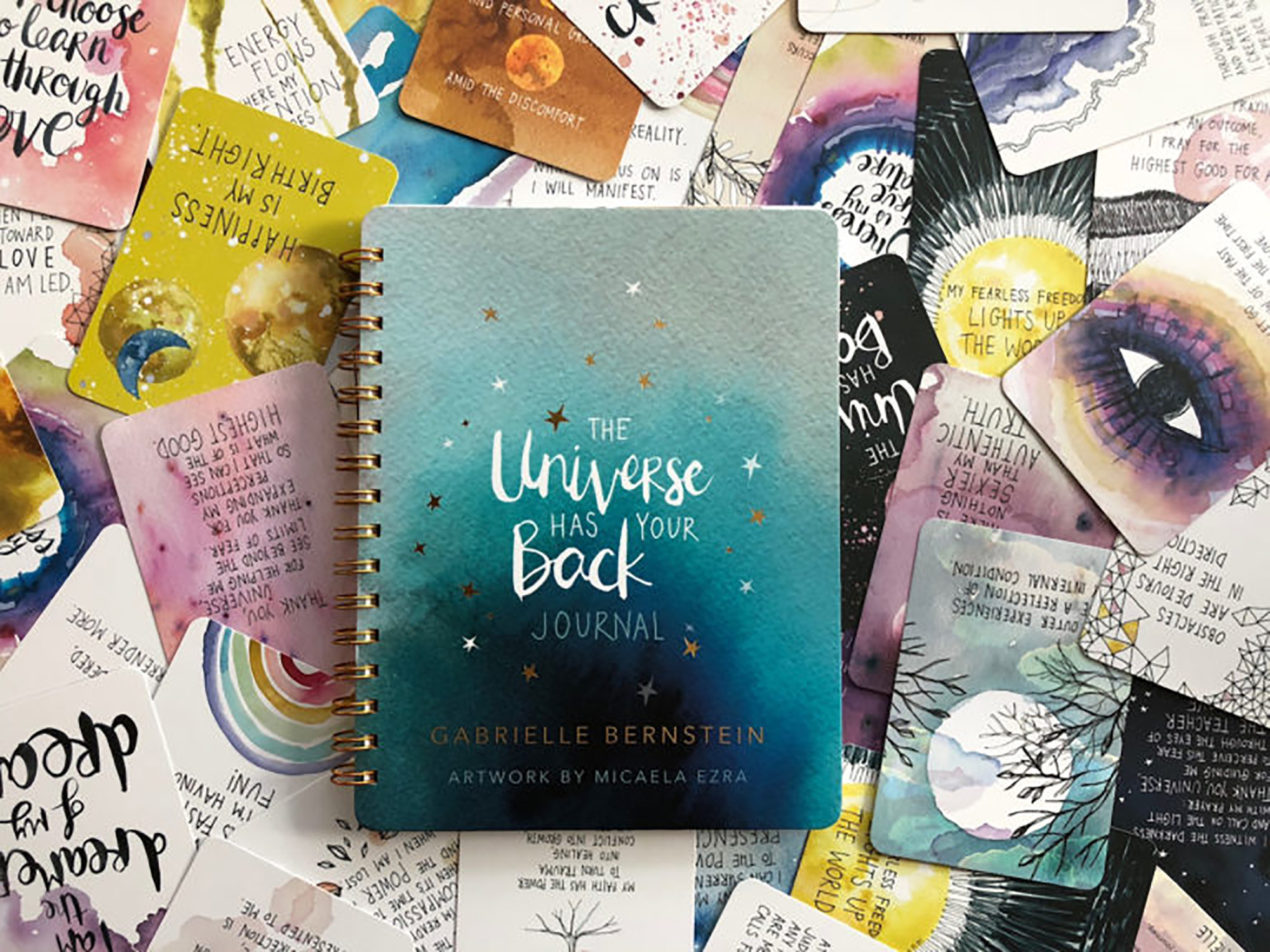
Fill the pages with words of wisdom; quotes from everyone from Michelle Obama to Bob the Drag Queen. You can also reference a list of gratitude prompts to get you started on an entry.
If you crave more structure and guidance to use inspiration as momentum towards manifesting your dreams, Gabby Bernstein — lauded by Oprah as a “next-generation thought leader” — developed a journal full of beautiful illustrations and meditations called “The Universe Has My Back.” If you’ve been sifting through types of journals that will lead you through a writing process towards setting intentions, this is it.
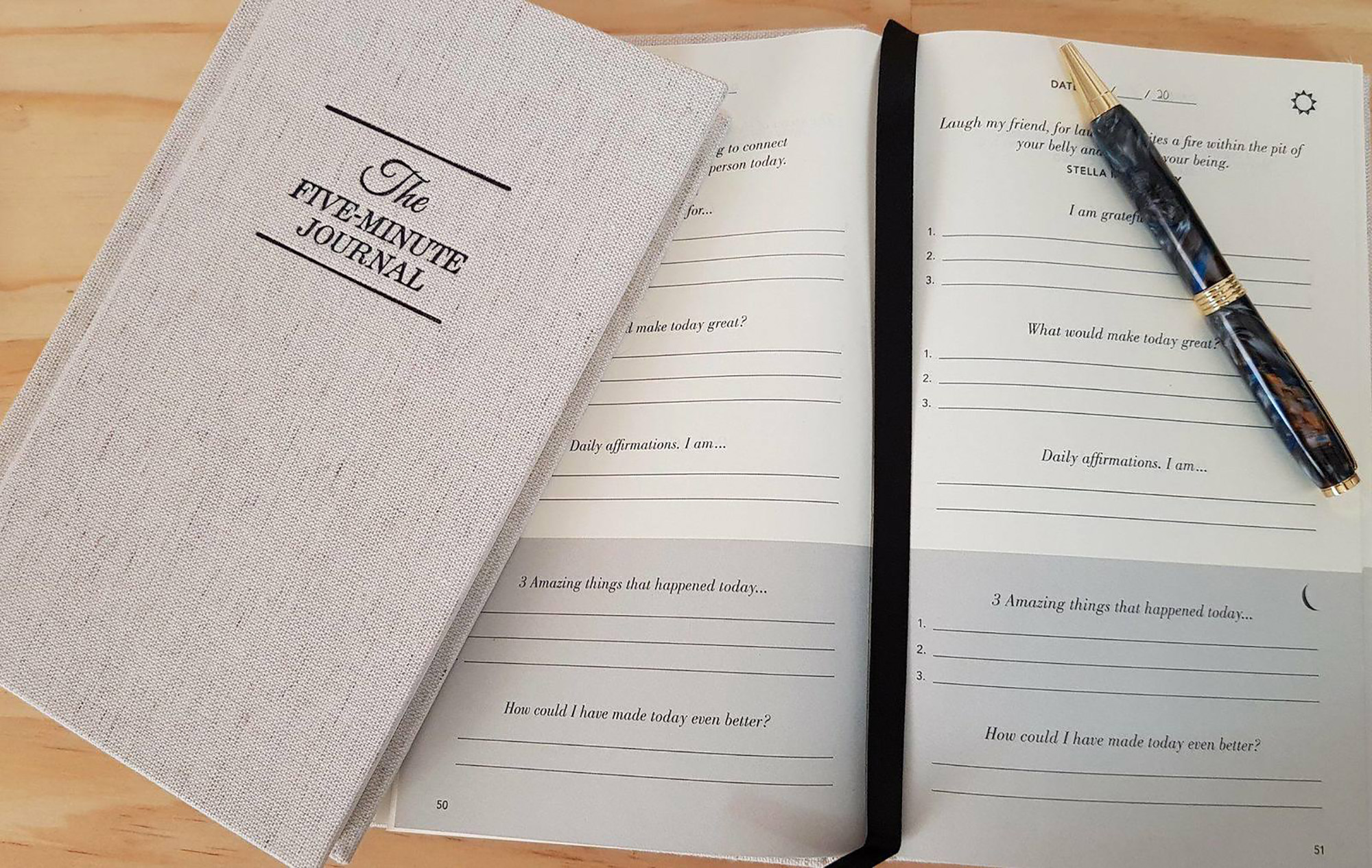
If you’re short on time, you could also try The Five Minute Journal. Rooted in proven elements of positive psychology, it offers daily affirmations, prompts and structured exercises that will help you approach life with rose-coloured glasses and a glass-half-full mindset.
The Artist
If words are not your jam, get creative with your daily observations. In a self-initiated project entitled “No Photos Please,” lettering artist (and my personal spirit animal) Lauren Hom left her camera at home and documented her globetrotting with whimsical illustrations.
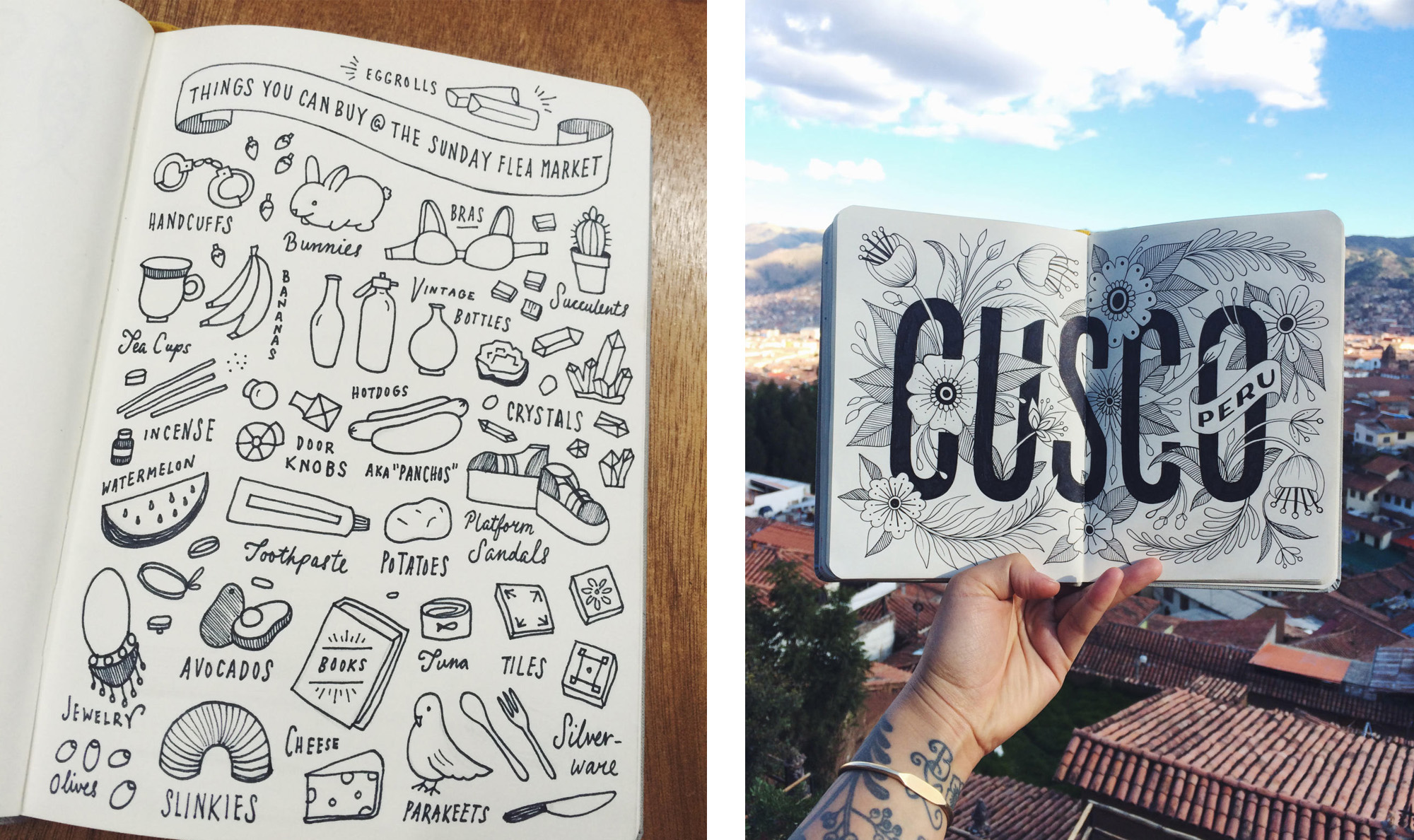
(Photos via nophotozplz.com by Lauren Hom)
While most types of journals are traditionally written, this is a great alternative if you can never seem to find the right words to express yourself but still need an emotional outlet. Pick a theme as Hom did – sketch the best parts of your day, groceries that you’re planning on picking up, or doodle things you saw while exploring a new neighbourhood.
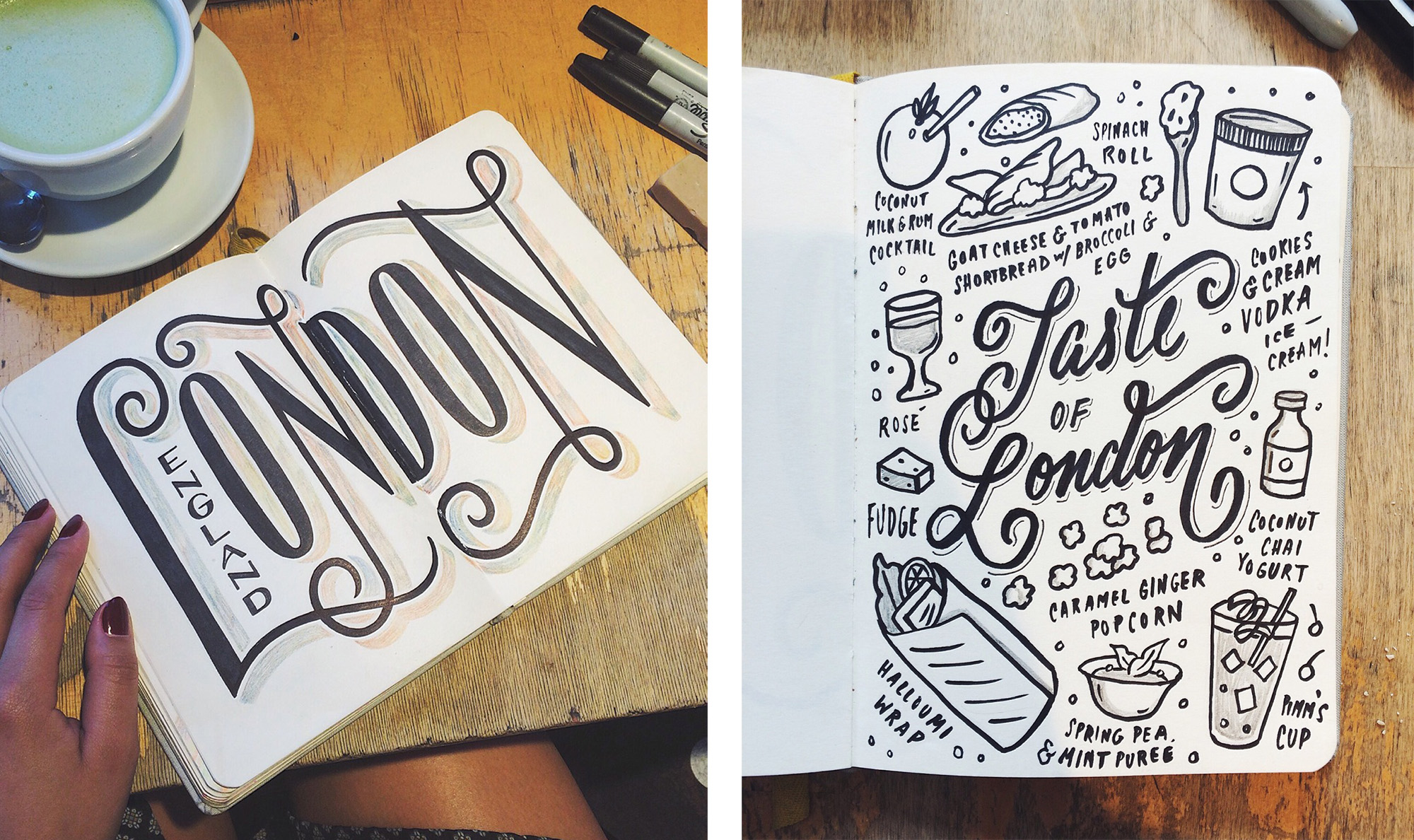
(Photos via nophotozplz.com by Lauren Hom)
I liked that she documented thoughts and worries she had in a playful type exploration as per below.
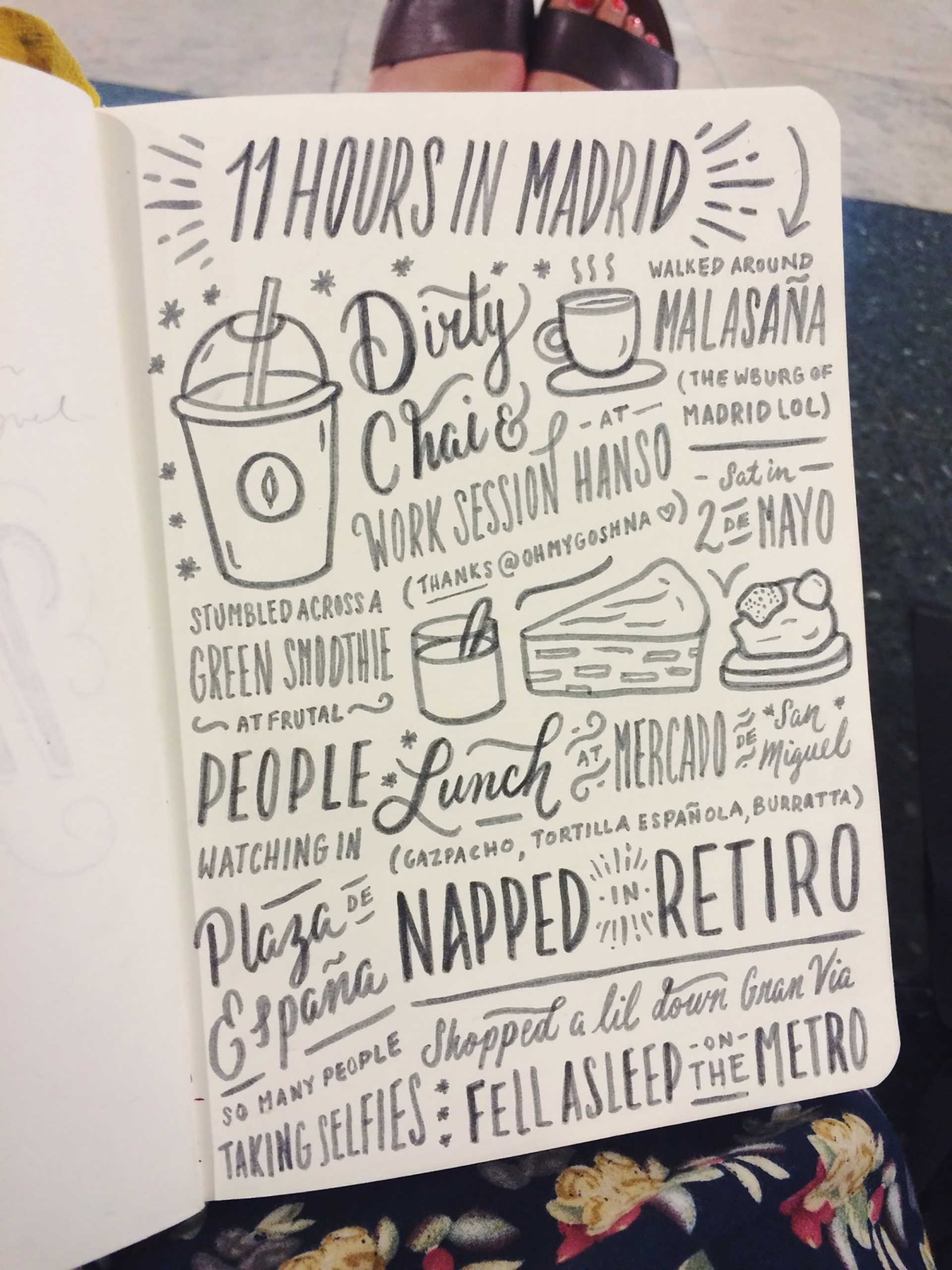
(Photos via nophotozplz.com by Lauren Hom)
The Straight Shooter
If ‘form follows function’ is your philosophy, the to-the-point Bullet Journal method may be your solution.
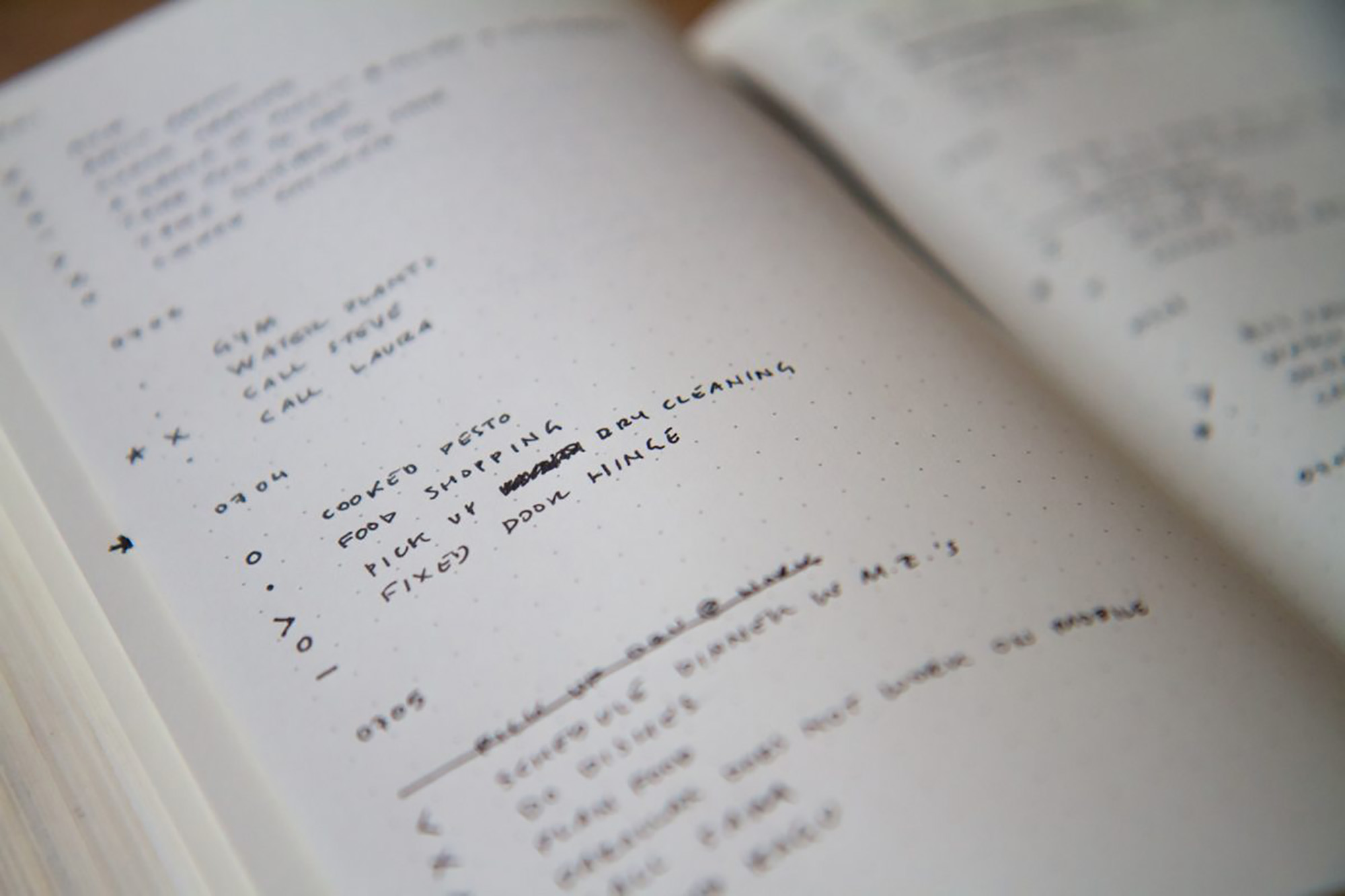
(Photo via The Goulet Pen Co)
The Bullet Journal is the holy grail in the world of obsessive avid journalling. More of a methodology, it’s described as “the analog journal for the digital age.” From being crowdsourced to drawing a cult following of devout journallers, the process aims to help increase focus, productivity and most importantly intentional living.
Bullet Journalling celebrates the art and benefits of handwriting while finding a workaround for its shortcomings. It utilizes what’s called Rapid Logging to capture and organize information in bulleted lists of short-form sentences paired with symbols to visually categorize entries.
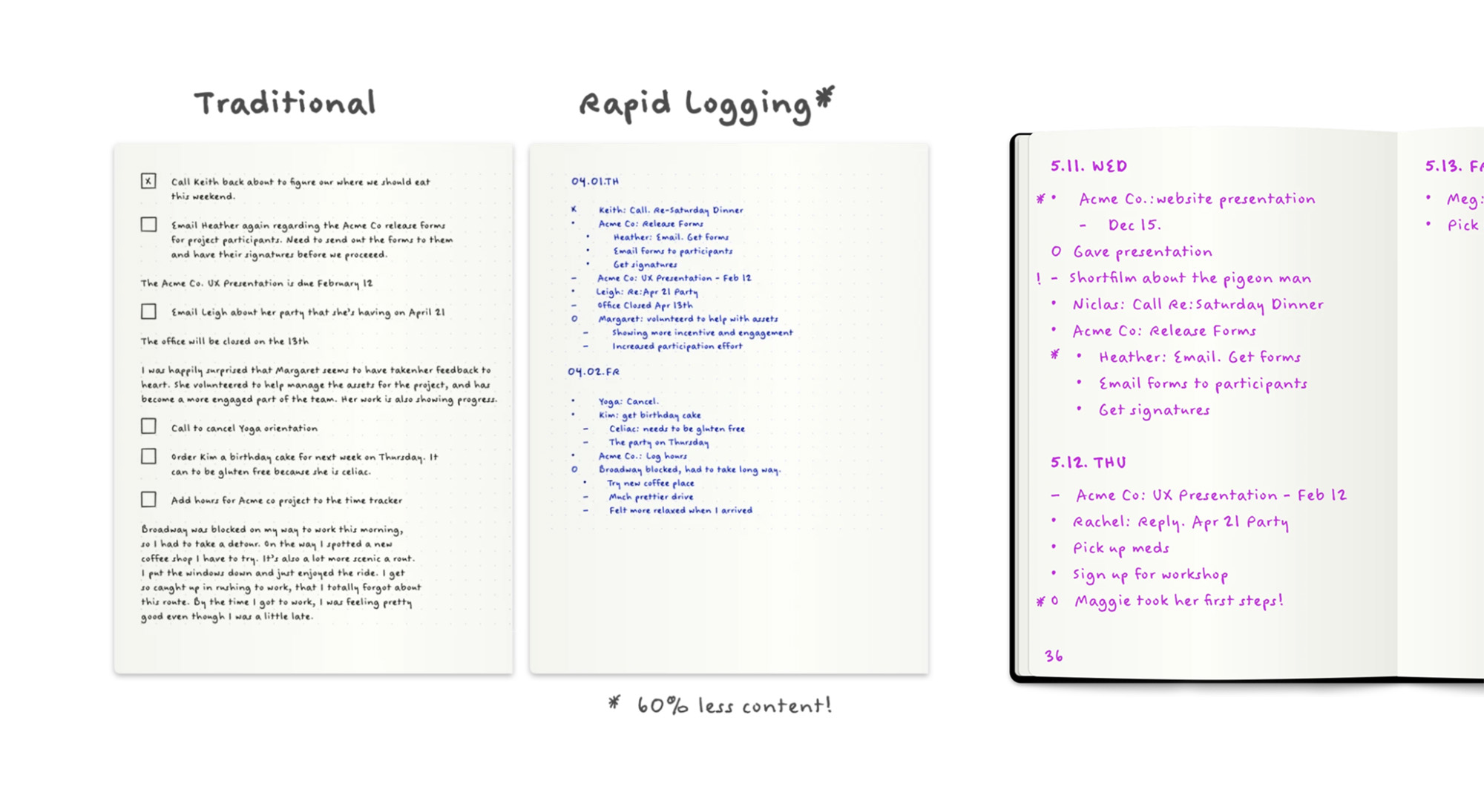
While there is a specific method for bullet journalling, you can use it as a jumping off point to develop a system that works for you. Bullet Journallers have been known to get fanatical inventive with their journals, elevating organization to creative heights.
The Sentimentalist
What do you do if what you treasure most are your memories and experiences but the idea of recording the minutiae of your day-to-day sounds unbearably tedious?
Don’t limit yourself to the confines of what you think a journal should be and get creative with cataloguing your treasured mementoes and keepsakes.
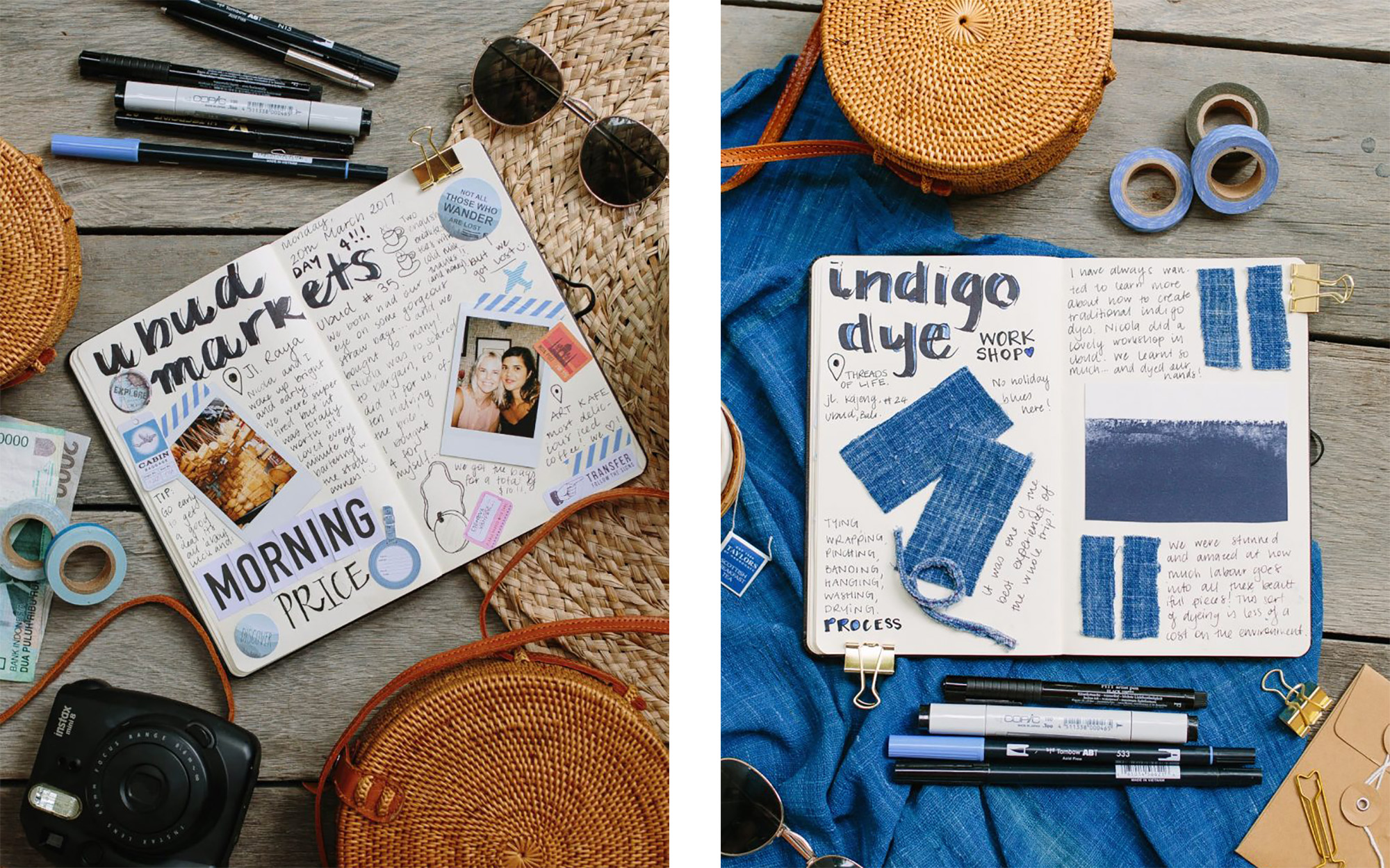
(Photo via Collective Gen)
As a traveller with magpie-esque tendencies of collecting everything from my trips from ticket stubs to local maps to candy wrappers printed in different languages, I’m obsessed with Collective Gen’s ideas for keeping a travel journal.
The Techie
Does the mere thought of pen and paper give your hand cramps? Don’t let that hold you back from the benefits of journalling. You can jot your thoughts down, safeguard memories and sort out all the feels on the digital page with a journal app.

Daylio App for non-writers
There are various journals apps for everyone from beginners (Five Minute Journal) to non-writers (Daylio) to social media enthusiasts (Momento).

Momento App easily connects to social media
Capitalize on all the features that other traditional types of journals don’t provide — automated reminders, exporting and syncing capabilities, minimalist interface. There is even password protection for those who need a little more peace of mind that their private thoughts will never be breached.
Hey — we all need a safe space to bitch about bosses and ex-boyfriends #nojudgement
The Word Smith
Do you glean immense satisfaction from finding the exact right words to express yourself? Are you constantly turning words over and over in your mind, searching to the right turn of phrase? Sounds like traditional journalling is right up your alley. No need to explore other types of journals but you can consider how to elevate your written entries to the next level.

Keeping a log for an individual who delights in communication is more than just recording your day-to-day. Since you’ve got the writing skills down, make a point of allowing yourself to be more present in the moment.
Slow down and pay attention to each of your senses. What do you smell? What do you hear? Be specific. The more you absorb, the richer your descriptions will be and the more your memories come to life on the page.
Consider what the goal of keeping a journal is for you — emotional release, recording memories, a testament to lessons learned, etc…
Having kept some form of a journal since I was 7, I know what I’m talking about when I say that keeping a journal will transform your life whether it’s helping you work through your emotions and thoughts or helping you be more productive and intentional.
There is no ultimate ONE way to journal. There are many types of journals that you can start that should work for you — your goals, strengths, interests — but like with anything, consistency is key to being effective.
Keep your stalking game strong and follow me @teriaki if you aren’t already!








0 Comments